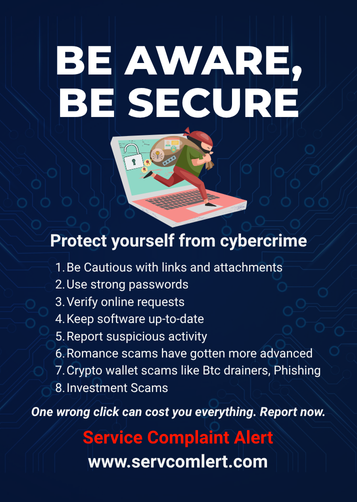In today’s hyper-connected world, where much of our lives unfold online, digital finances have become an inseparable part of personal relationships. Sharing passwords, joint accounts, and investment portfolios once reserved for married couples now often happens early in dating or cohabitation. Yet, as the lines between emotional intimacy and financial transparency blur, questions about privacy, trust, and control come sharply into focus.
Recent studies indicate that nearly 40% of couples face disputes rooted in money management, and with digital assets like cryptocurrencies gaining traction, the stakes are higher than ever. The ease of transferring funds or sharing financial details over apps adds convenience but also risks. In this delicate balancing act, protecting your financial privacy is crucial — not as a sign of distrust, but as a safeguard for your autonomy and security.
This article explores the nuances of keeping your digital finances private in modern relationships. We’ll delve into how evolving tech impacts trust, the challenges posed by cryptocurrency and online wallets, and practical steps to protect your financial boundaries. Along the way, we highlight real stories, expert advice, and subtle ways tools like Voyallet can support secure asset management without compromising your privacy.
Why Financial Privacy Matters More Than Ever
Money has always been a complex thread in relationships. Traditionally, financial privacy was about keeping bank statements or paychecks separate. Now, the digital ecosystem — from online banking to mobile payment apps and crypto wallets — makes money a 24/7 accessible, shareable asset.
Couples often feel pressure to “share everything,” interpreting full transparency as trustworthiness. But financial privacy is not about secrecy or dishonesty; it’s about maintaining control over your personal resources, protecting against exploitation, and ensuring you’re prepared for unforeseen circumstances.
This is especially vital when digital assets come into play. Unlike cash or traditional investments, cryptocurrencies are pseudonymous and can be moved quickly. The risk of unauthorized transactions, scams, or simply making rushed financial decisions under emotional influence is real.
Moreover, breakup scenarios often reveal hidden financial conflicts. A 2023 survey by the National Endowment for Financial Education found that nearly 45% of respondents experienced financial harm after separation, often due to shared digital access or poorly documented agreements.
Navigating Trust and Transparency in the Digital Age
Trust is the cornerstone of any relationship, but it doesn’t require full financial disclosure. Instead, couples benefit from clear communication about money values, goals, and boundaries.
Experts recommend establishing “financial boundaries” early. For example, setting limits on what accounts or assets are shared, agreeing on who manages which bills, and deciding on thresholds for joint spending.
Cryptocurrency adds a new layer. Since crypto wallets like those offered by platforms such as Voyallet combine multiple functions — from investment tracking to secure spending cards — it’s easier to manage funds discreetly and safely. This reduces the temptation to share passwords or expose all assets on a single platform.
Financial counselors stress that privacy enables healthier autonomy. When both partners have a sense of control over their individual finances, it reduces resentment and conflict. One relationship coach noted:
“Financial privacy isn’t about hiding things; it’s about respecting individuality and creating space for mutual financial growth.”
Risks of Oversharing Financial Details
While sharing can foster intimacy, oversharing your digital financial information can lead to risks:
- Unauthorized Access: Passwords saved on shared devices or apps can be misused, sometimes unintentionally.
- Financial Abuse: Controlling partners may exploit shared access to limit spending or siphon funds.
- Emotional Manipulation: Partners might pressure each other into financial decisions that are not in their best interest.
- Compromised Security: Using the same passwords or links to external apps weakens security.
- Legal Complications: Joint accounts or shared crypto wallets without proper agreements can complicate asset division.
In one case, a woman named Laura recounted how early sharing of her crypto wallet credentials led to a painful experience:
“I thought transparency was trust. But after we broke up, I realized he had moved funds without my consent. Recovering those assets felt impossible. I was able to recover some of my funds after reporting the case to Service Complaint Alert (SCA).”
Stories like Laura’s are common enough that awareness and preventive measures are critical.
Practical Steps to Protect Your Digital Financial Privacy
- Use Separate Accounts: Maintain individual bank and investment accounts, even if you share some joint finances for household expenses.
- Set Clear Boundaries: Discuss and document financial boundaries. Decide what is shared and what remains private.
- Secure Your Passwords: Use password managers and avoid sharing login details. Enable two-factor authentication for all financial platforms.
- Educate Yourself on Crypto Security: Understand how wallets work, the difference between custodial and non-custodial wallets, and risks involved.
- Leverage Trusted Tools: Platforms like Voyallet integrate secure crypto management features that enable users to keep control without sharing sensitive credentials. For example, its multi-functional wallet allows investment, staking, and crypto card use under one secure app — limiting the need to expose account details.
- Regularly Review Permissions: Periodically audit who has access to your digital financial information and revoke access if necessary.
- Have Contingency Plans: Prepare for potential breakups or emergencies by having clear agreements and access to essential accounts.
The Human Side: Balancing Privacy and Connection
Maintaining financial privacy doesn’t mean emotional distance. Couples can still nurture trust through transparency about financial habits and goals — without sharing every detail.
Consider the story of Amir and Sophia, who chose to keep separate crypto wallets but openly discussed their investment strategies and financial aspirations.
“We agreed not to share wallet passwords but always update each other on our goals and risks. It works because we respect each other’s privacy but stay aligned on what matters.”
Financial therapists echo that healthy relationships balance individual autonomy and shared responsibility. Keeping some finances private can even strengthen trust, reducing anxiety over potential conflicts.
Actionable Takeaways
- Treat financial privacy as a form of self-care and respect within relationships.
- Use technology wisely: adopt secure wallets and password managers.
- Communicate openly about money values, goals, and limits — but recognize that full access isn’t mandatory.
- Keep learning about digital finance tools and risks, including cryptocurrency.
- If you’re navigating digital assets, consider trusted solutions like Voyallet, which blend security and ease of use, allowing you to manage crypto discreetly.
Looking Ahead
As relationships evolve alongside digital finance innovations, the challenge remains: how to foster intimacy without sacrificing personal security. By prioritizing financial privacy as a form of empowerment rather than mistrust, couples can build partnerships rooted in respect and mutual growth.
The digital era demands new approaches, but with thoughtful boundaries and smart tools, protecting your financial autonomy is not just possible — it’s essential for healthy modern relationships.


















